How I Made Partner: Latham & Watkins' Laura Washington
"You have to add value to a litigation or a deal in a unique way—whether by knowing an area of the law or the facts of a case better than anyone else, or having great rapport with clients."
June 10, 2019 at 04:04 PM
5 minute read
Laura Washington, 34, Latham & Watkins
Office: Century City, California.
Practice area: Complex commercial litigation and entertainment sports and media litigation.
Law school and year of graduation: Georgetown University Law Center, 2009.
How long have you been at the firm? Since June 2015.
How long were you an associate at the firm? Two years.
Were you an associate at another firm before joining your present firm? Yes, I started my career as an associate at O'Melveny & Myers in December 2009. I left in June 2015 and came to Latham & Watkins.
What year did you make partner at your current firm? January 2018.
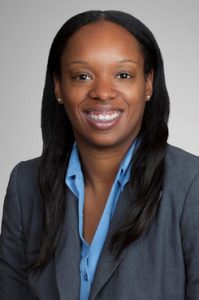 Laura Washington of Latham & Watkins.
Laura Washington of Latham & Watkins.What's the biggest surprise you experienced in becoming partner? When I made partner, I received so many congratulations and heartfelt notes from staff, associates and my fellow partners throughout the firm. What struck me the most was the number of notes I received from female associates of color, some of whom I had never met, expressing how I had inspired them by making partner. When I was grinding to make partner, I could get so absorbed in the details of a specific matter or litigation that I could lose the perspective that associates look to their seniors—particularly partners—as a guide or model for their own careers. To realize I had become a model for others was truly humbling and surprising and incredibly meaningful.
What do you think was the deciding point for the firm in making you partner? Latham takes a holistic approach when selecting partners and considers many factors. I believe Latham considered my performance on individual matters, my ability to work with other partners and to supervise junior associates, my work on firm committees, my commitment to the firm's diversity efforts, and the strength of my practice and potential for growth.
Describe how you feel now about your career now that you've made partner. Pretty good. Making partner was a goal I was striving for since I was a junior associate, and when it happened it was an amazing feeling. But I see partnership as one step in a long career, one that allows me to have more control in shaping my career.
What's the key to successful business development in your opinion? Saying yes. We work long, hard hours. So when clients, potential clients, friends, work colleagues or acquaintances ask us to attend events at the end of a long day, it can be tempting to make excuses and say no. But saying yes and attending events is the key to successful business development—which is all about relationships. By going, not only are you maintaining and improving your relationships with current clients and colleagues, but you are generating opportunities to form relationships with individuals that may ultimately lead to new business.
What's been the biggest change, day-to-day, in your routine since becoming partner? The amount of emails and calls I get in a single day has significantly increased, especially after 9 a.m. In order to manage, I get into the office much earlier, well before 9 a.m. I find that I can be the most productive early in the day when it is quieter.
Who had the greatest influence in your career that helped propel you to partner? Marvin Putnam, a trial and litigation partner in the entertainment, sports and media practice. Marvin was previously a partner at O'Melveny & Myers when I started my career there. From my first year as an associate until now, Marvin has always supported my career and been my mentor and sponsor. When I was a junior associate, he had confidence in me and gave me opportunities that junior associates typically do not receive, like first chairing depositions, preparing CEOs for trial testimony, and participating in jury voir dire. His confidence has never wavered and continues now that I am his partner. The opportunities Marvin presented me as a junior associate were instrumental to my development into the lawyer I am today.
What's the best piece of advice you could give an associate who wants to make partner? Obviously, doing excellent work is a prerequisite for making partner. But all of the associates who are considered for partner do excellent work, so partnership requires more than that. You have to add value to a litigation or a deal in a unique way—whether by knowing an area of the law or the facts of a case better than anyone else or having a great rapport with clients. Your value proposition could be anything. Once you identify how you can add value in a unique way, use that skill to distinguish yourself from other associates. And make sure you have a mentor. Without a mentor—someone guiding your path to partnership, that path is nearly impossible to navigate. We all stand on someone else's shoulders. Make sure you have shoulders to stand on.
This content has been archived. It is available through our partners, LexisNexis® and Bloomberg Law.
To view this content, please continue to their sites.
Not a Lexis Subscriber?
Subscribe Now
Not a Bloomberg Law Subscriber?
Subscribe Now
NOT FOR REPRINT
© 2025 ALM Global, LLC, All Rights Reserved. Request academic re-use from www.copyright.com. All other uses, submit a request to [email protected]. For more information visit Asset & Logo Licensing.
You Might Like
View All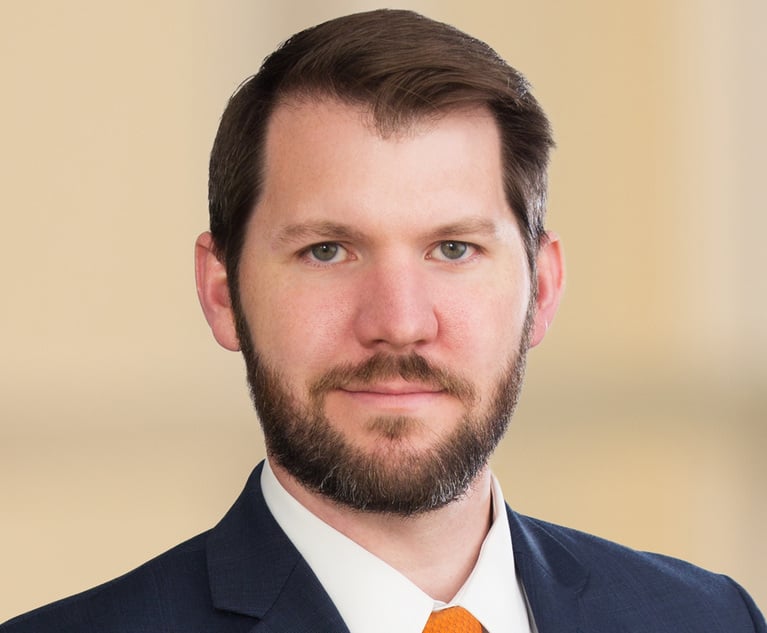
How I Made Office Managing Partner: 'Don’t Be an Opportunity Killer,' Says Thomas Haskins of Barnes & Thornburg
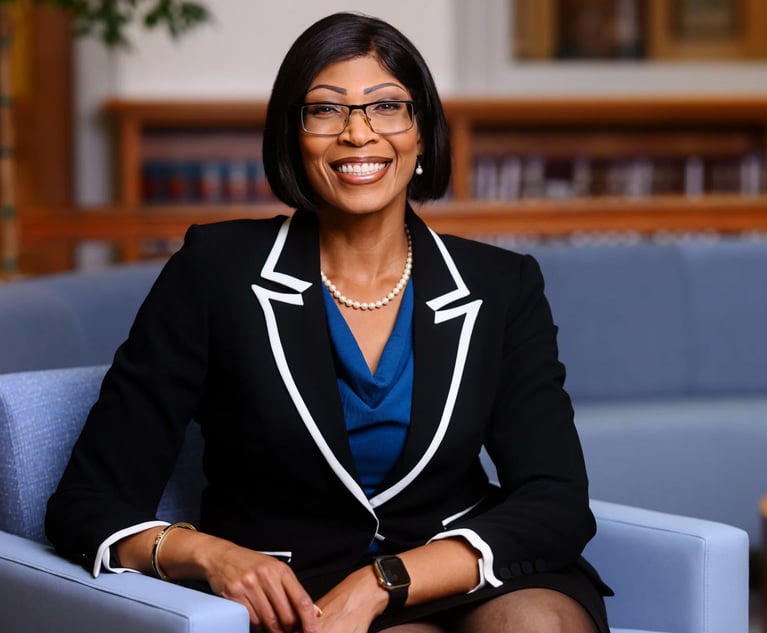
Retention, Development and 'Empowering Teams': This Am Law 200 Firm's Newest Practice Leader Says Objectives Haven't Changed
6 minute read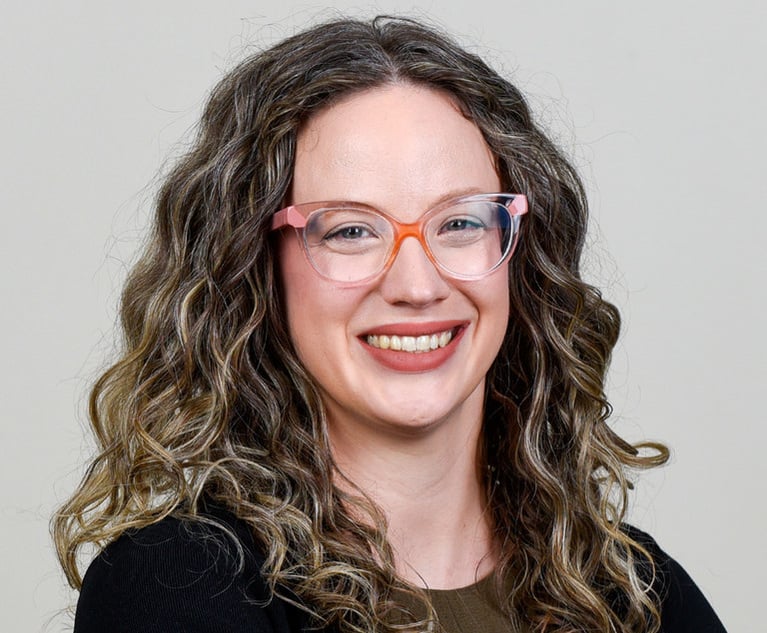
How I Made Partner: 'Take Every Opportunity to Get Involved in the Business Side of the Firm,' Says Alyssa Domzal of Ballard Spahr
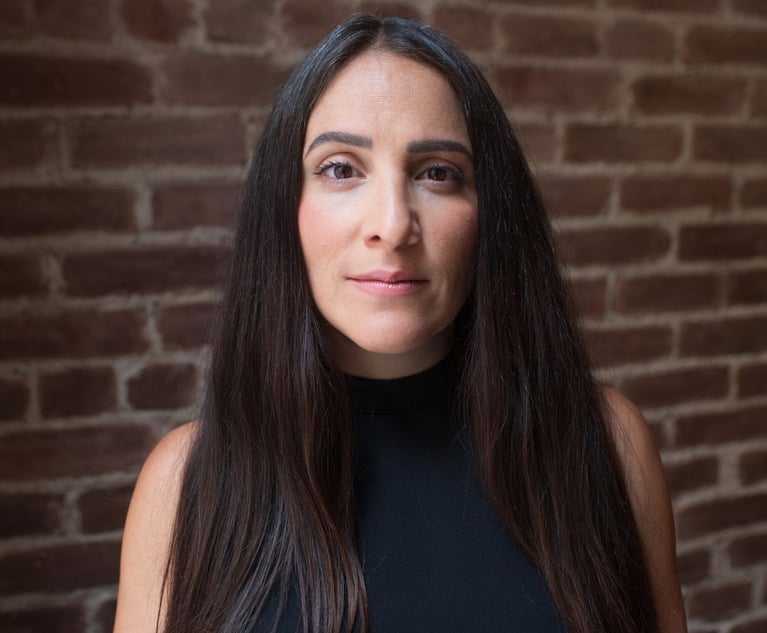
How I Made Practice Group Chair: 'Cultivating a Culture of Mutual Trust Is Essential,' Says Gina Piazza of Tarter Krinsky & Drogin
Trending Stories
- 1States Accuse Trump of Thwarting Court's Funding Restoration Order
- 2Microsoft Becomes Latest Tech Company to Face Claims of Stealing Marketing Commissions From Influencers
- 3Coral Gables Attorney Busted for Stalking Lawyer
- 4Trump's DOJ Delays Releasing Jan. 6 FBI Agents List Under Consent Order
- 5Securities Report Says That 2024 Settlements Passed a Total of $5.2B
Who Got The Work
J. Brugh Lower of Gibbons has entered an appearance for industrial equipment supplier Devco Corporation in a pending trademark infringement lawsuit. The suit, accusing the defendant of selling knock-off Graco products, was filed Dec. 18 in New Jersey District Court by Rivkin Radler on behalf of Graco Inc. and Graco Minnesota. The case, assigned to U.S. District Judge Zahid N. Quraishi, is 3:24-cv-11294, Graco Inc. et al v. Devco Corporation.
Who Got The Work
Rebecca Maller-Stein and Kent A. Yalowitz of Arnold & Porter Kaye Scholer have entered their appearances for Hanaco Venture Capital and its executives, Lior Prosor and David Frankel, in a pending securities lawsuit. The action, filed on Dec. 24 in New York Southern District Court by Zell, Aron & Co. on behalf of Goldeneye Advisors, accuses the defendants of negligently and fraudulently managing the plaintiff's $1 million investment. The case, assigned to U.S. District Judge Vernon S. Broderick, is 1:24-cv-09918, Goldeneye Advisors, LLC v. Hanaco Venture Capital, Ltd. et al.
Who Got The Work
Attorneys from A&O Shearman has stepped in as defense counsel for Toronto-Dominion Bank and other defendants in a pending securities class action. The suit, filed Dec. 11 in New York Southern District Court by Bleichmar Fonti & Auld, accuses the defendants of concealing the bank's 'pervasive' deficiencies in regards to its compliance with the Bank Secrecy Act and the quality of its anti-money laundering controls. The case, assigned to U.S. District Judge Arun Subramanian, is 1:24-cv-09445, Gonzalez v. The Toronto-Dominion Bank et al.
Who Got The Work
Crown Castle International, a Pennsylvania company providing shared communications infrastructure, has turned to Luke D. Wolf of Gordon Rees Scully Mansukhani to fend off a pending breach-of-contract lawsuit. The court action, filed Nov. 25 in Michigan Eastern District Court by Hooper Hathaway PC on behalf of The Town Residences LLC, accuses Crown Castle of failing to transfer approximately $30,000 in utility payments from T-Mobile in breach of a roof-top lease and assignment agreement. The case, assigned to U.S. District Judge Susan K. Declercq, is 2:24-cv-13131, The Town Residences LLC v. T-Mobile US, Inc. et al.
Who Got The Work
Wilfred P. Coronato and Daniel M. Schwartz of McCarter & English have stepped in as defense counsel to Electrolux Home Products Inc. in a pending product liability lawsuit. The court action, filed Nov. 26 in New York Eastern District Court by Poulos Lopiccolo PC and Nagel Rice LLP on behalf of David Stern, alleges that the defendant's refrigerators’ drawers and shelving repeatedly break and fall apart within months after purchase. The case, assigned to U.S. District Judge Joan M. Azrack, is 2:24-cv-08204, Stern v. Electrolux Home Products, Inc.
Featured Firms
Law Offices of Gary Martin Hays & Associates, P.C.
(470) 294-1674
Law Offices of Mark E. Salomone
(857) 444-6468
Smith & Hassler
(713) 739-1250









